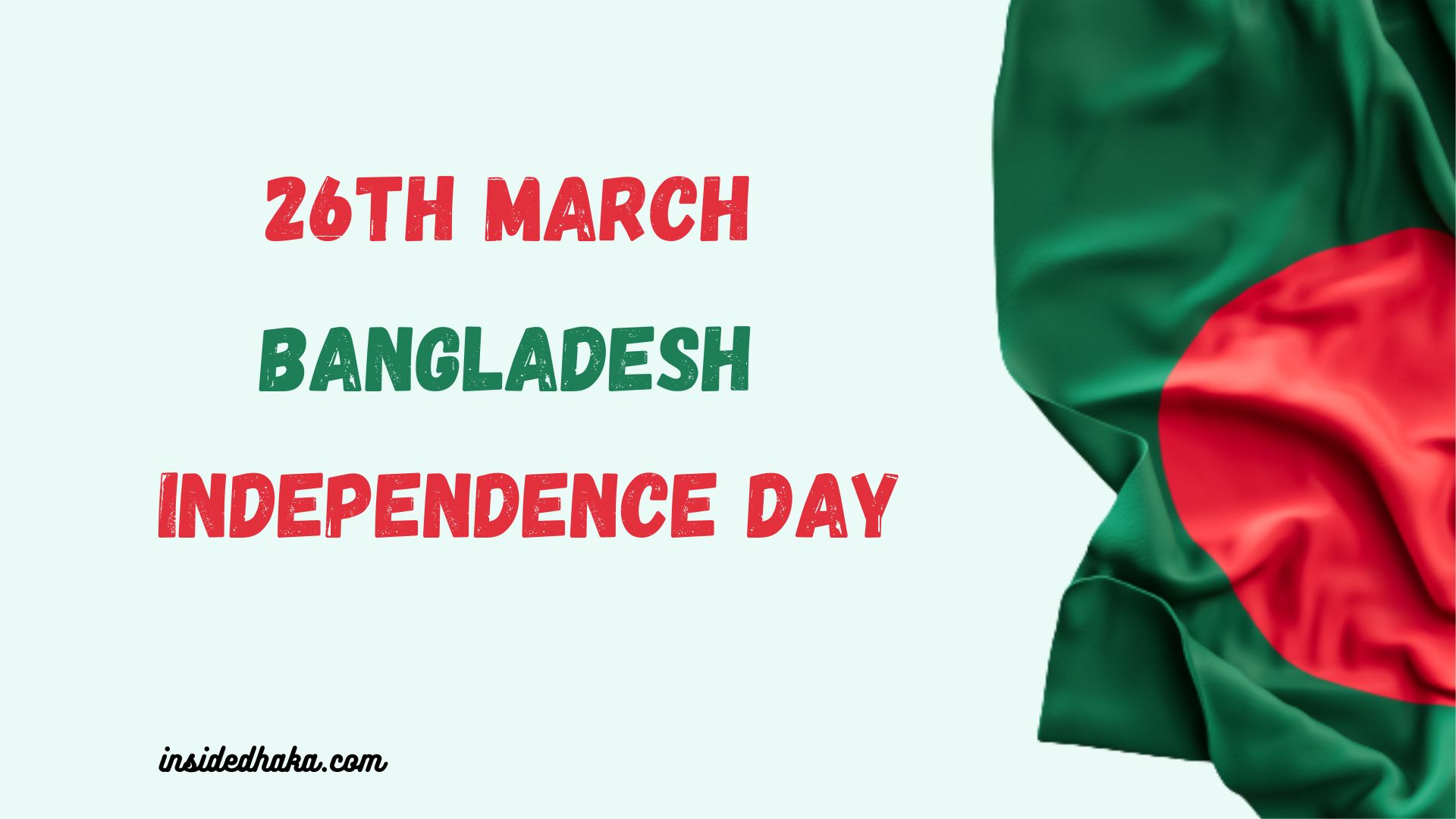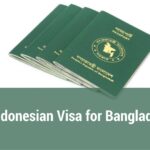Bangladesh Independence Day is a national holiday that is celebrated on 26 March every year. It marks the day when the country declared its independence from Pakistan in 1971, after a nine-month-long war of liberation. On this day, the people of Bangladesh pay tribute to the martyrs and heroes who sacrificed their lives for the cause of freedom and democracy. The day also reflects the pride and identity of the Bangladeshi nation, which has overcome many challenges and hardships since its birth.
The History of Bangladesh Independence Day
The history of Bangladesh Independence Day dates back to the partition of India in 1947, when the British colonial rule ended and two new countries were created: India and Pakistan. Pakistan was divided into two wings: West Pakistan and East Pakistan, separated by more than 1,000 miles of Indian territory. East Pakistan, which is now Bangladesh, was predominantly populated by Bengali-speaking Muslims and Hindus, who had a distinct culture, language, and history from West Pakistan.
However, the political and economic power was concentrated in West Pakistan, which discriminated against and exploited East Pakistan. The people of East Pakistan faced many injustices and inequalities, such as the imposition of Urdu as the national language, the denial of provincial autonomy, the neglect of development and welfare, and the suppression of civil and political rights. The Bengalis resisted these policies and demanded their rights and recognition through various movements and protests.
The most significant of these was the Bengali Language Movement of 1952, when thousands of students and activists took to the streets to demand Bengali be recognized as one of the state languages of Pakistan. The police opened fire on the peaceful demonstrators, killing several people. This sparked a nationwide uprising that eventually forced the government to accept Bengali as a state language. The martyrs of the language movement are honored every year on 21 February, which is observed as International Mother Language Day by UNESCO.
The struggle for democracy and autonomy continued throughout the 1950s and 1960s, led by various political parties and leaders, especially Sheikh Mujibur Rahman, the founder of the Awami League. Sheikh Mujib, popularly known as Bangabandhu (Friend of Bengal), emerged as the voice of the Bengali people and articulated their aspirations through his Six-Point Program, which called for greater political and economic autonomy for East Pakistan.
In 1970, the first general election was held in Pakistan, in which the Awami League won a landslide victory in East Pakistan, securing 167 out of 169 seats. However, the military ruler of Pakistan, General Yahya Khan, refused to transfer power to Sheikh Mujib and his party. Instead, he launched a brutal military crackdown on East Pakistan on 25 March 1971, killing thousands of innocent civilians and arresting Sheikh Mujib.
Before his arrest, Sheikh Mujib declared the independence of Bangladesh in a historic speech at Ramna Race Course in Dhaka on 26 March 1971 1. His declaration was broadcasted by Major Ziaur Rahman from Chittagong on behalf of Sheikh Mujib on 27 March 1971 2. This ignited a nationwide resistance against the Pakistani occupation forces and their collaborators. The people of Bangladesh formed a provisional government-in-exile in India and organized a guerrilla army called Mukti Bahini (Freedom Fighters), with support from India and other countries.
The war of liberation lasted for nine months, during which about three million people were killed and millions more were displaced or tortured by the Pakistani army and their allies. The war ended on 16 December 1971, when the Pakistani army surrendered to the joint forces of Mukti Bahini and Indian army at Dhaka. This day is celebrated as Victory Day in Bangladesh. Bangladesh was officially recognized as an independent sovereign state by Pakistan on 22 February 1974 .
The Celebration of Bangladesh Independence Day
Bangladesh Independence Day is celebrated with great enthusiasm and patriotism across the country. The day begins with a 31-gun salute at dawn , followed by hoisting of the national flag at all public buildings and institutions. The President and the Prime Minister deliver speeches to the nation from Bangabhaban (Presidential Palace) and Ganabhaban (Prime Minister’s Residence) respectively. They also pay homage to the National Martyrs’ Memorial at Savar , where thousands of people gather to offer their respects to the fallen heroes.
Various cultural programs are organized throughout the day by different organizations and groups. These include parades, rallies, exhibitions, seminars, concerts, poetry recitals, dance performances, drama shows, etc. The theme of these programs is usually related to the history and culture of Bangladesh, as well as its achievements and challenges. The national anthem “Amar Sonar Bangla” (My Golden Bengal) and other patriotic songs are sung by the people with pride and emotion.
The celebration of Bangladesh Independence Day is not limited to the country itself. The Bangladeshi diaspora around the world also observes the day with fervor and festivity. They organize various events and activities to commemorate the occasion and to promote the image and identity of Bangladesh in their respective countries. They also express their solidarity and support for the development and progress of their motherland.
The Significance of Bangladesh Independence Day
Bangladesh Independence Day is a significant day for the Bangladeshi people, as it reminds them of their glorious past and inspires them for their future. The day symbolizes the courage and sacrifice of the millions of people who fought for their freedom and dignity. The day also reflects the resilience and determination of the Bangladeshi nation, which has overcome many adversities and obstacles since its inception. The day also showcases the diversity and richness of the Bangladeshi culture, which is a blend of various influences and traditions.
Bangladesh Independence Day is a day to celebrate the achievements and potentials of Bangladesh, as well as to acknowledge its challenges and opportunities. The day is a day to reaffirm the values and principles that guided the liberation war, such as democracy, secularism, nationalism, and social justice. The day is also a day to renew the commitment and responsibility of the Bangladeshi people to uphold the sovereignty and integrity of their country, as well as to contribute to its development and prosperity.
Bangladesh Independence Day is a day to honor the past, celebrate the present, and envision the future. It is a day to express gratitude, pride, and hope for Bangladesh. It is a day to say: Joy Bangla! (Long Live Bengla!)
Bangladesh Independence Day, also known as Shadhinota Dibosh, is a national holiday that is celebrated on 26 March every year. It marks the anniversary of the historic declaration of independence from Pakistan by the leader of the nation, Sheikh Mujibur Rahman, in the early hours of 25 March 1971. The day is also a tribute to the sacrifices and struggles of the millions of people who fought for the liberation of Bangladesh in a nine-month-long war that ended with the surrender of the Pakistan Army on 16 December 1971.
The history of Bangladesh Independence Day dates back to the colonial era, when the British Raj divided Bengal into East Bengal and West Bengal in 1905. The partition was based on religious lines, with Muslim-majority East Bengal becoming part of Pakistan and Hindu-majority West Bengal becoming part of India after the independence of both countries in 1947. However, the people of East Bengal, who were mostly Bengali-speaking, faced discrimination and oppression from the West Pakistani rulers, who imposed Urdu as the national language and exploited the resources and revenues of the eastern wing.
The Bengali nationalist movement gained momentum in 1952, when students and activists protested against the imposition of Urdu and demanded Bengali to be recognized as a state language. The protest was met with brutal force by the police, who killed several demonstrators on 21 February. This event sparked a wave of resistance and solidarity among the Bengalis, who observed 21 February as Language Martyrs’ Day, which later became International Mother Language Day. The movement also gave rise to political leaders such as Sheikh Mujibur Rahman, who formed the Awami League party in 1949 and advocated for greater autonomy and democracy for East Pakistan.
In 1970, the Awami League won a landslide victory in the general elections, securing a majority in the National Assembly and forming a government in East Pakistan. However, the West Pakistani military dictator Yahya Khan refused to transfer power to Sheikh Mujib and his party, and instead launched a brutal crackdown on the Bengalis on 25 March 1971. This operation, known as Operation Searchlight, resulted in widespread killings, rapes, arson, and looting by the Pakistani forces and their collaborators. The atrocities triggered a mass uprising and a declaration of independence by Sheikh Mujib before his arrest. The declaration was broadcasted by Major Ziaur Rahman on behalf of Sheikh Mujib from Chittagong on 27 March.
The declaration of independence ignited a full-scale war between the Bengali freedom fighters, known as Mukti Bahini, and the Pakistani forces. The Mukti Bahini consisted of regular soldiers who defected from the Pakistan Army, Navy, and Air Force, as well as civilians who formed guerrilla units. They received moral and material support from India, which also faced a refugee crisis due to millions of Bengalis fleeing from the violence. The war lasted for nine months, during which an estimated three million people were killed and ten million were displaced. The war ended with a decisive victory for the Mukti Bahini and their allies on 16 December 1971, when the Pakistani forces surrendered at Dhaka. This day is celebrated as Victory Day in Bangladesh.
Bangladesh Independence Day is celebrated with great enthusiasm and patriotism across the country. The day begins with a 31-gun salute and hoisting of the national flag at dawn. The president and the prime minister deliver speeches and pay homage to the National Martyrs’ Memorial at Savar. Various cultural programs, parades, award ceremonies, exhibitions, seminars, and competitions are held throughout the day. People sing patriotic songs and the national anthem, wear green and red clothes or badges, decorate their houses and streets with flags and banners, and exchange greetings and sweets with their friends and family. The day is also marked by special prayers in mosques, temples, churches, and other places of worship. The day ends with fireworks and illumination of important buildings.
Bangladesh Independence Day is not only a celebration of freedom and sovereignty, but also a celebration of resilience and unity. It is a reminder of the courage and sacrifice of those who laid down their lives for the cause of Bangladesh. It is also a reflection of the diversity and harmony of Bangladesh’s culture and society. It is a symbol of hope and progress for Bangladesh’s future.






